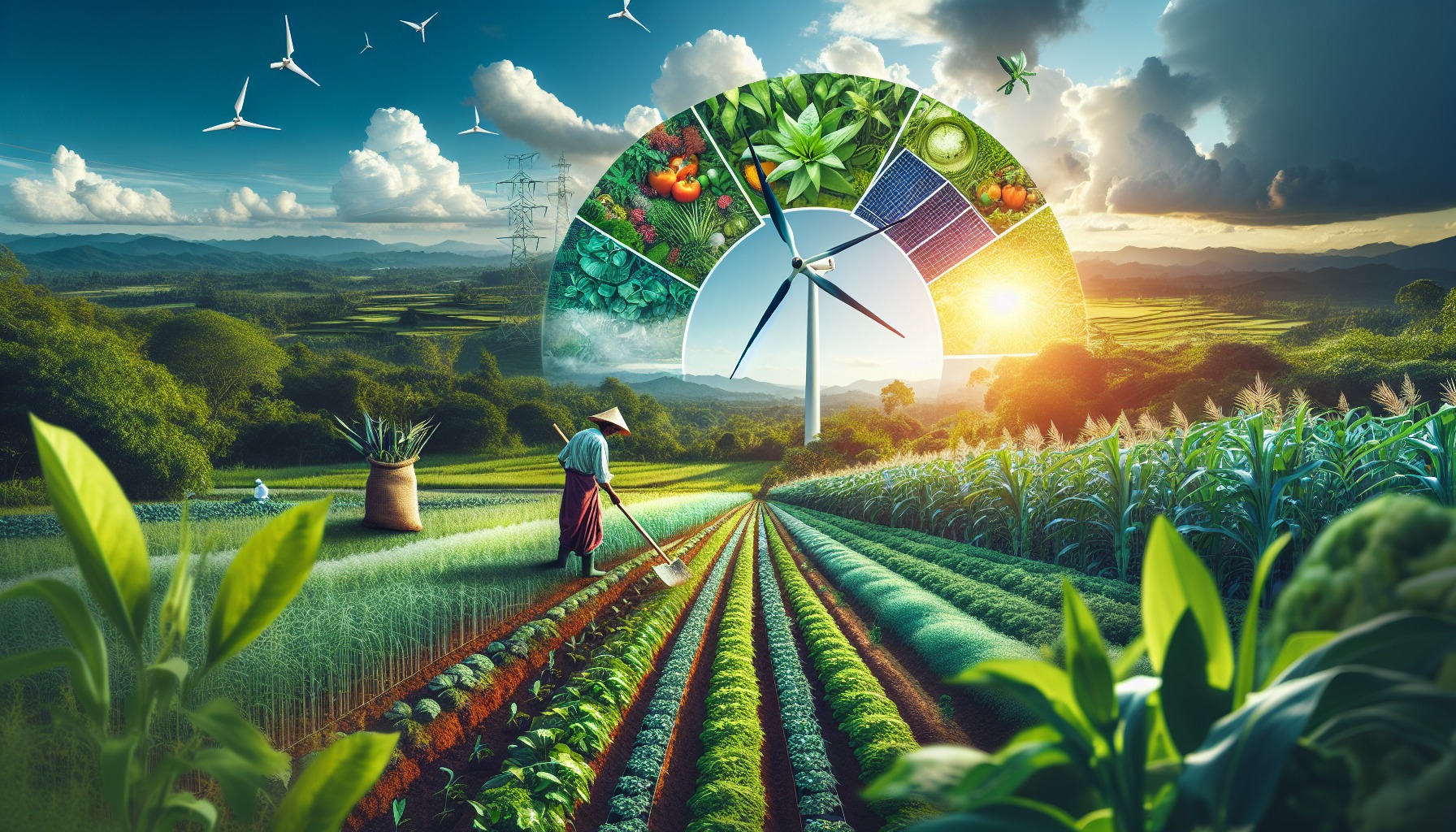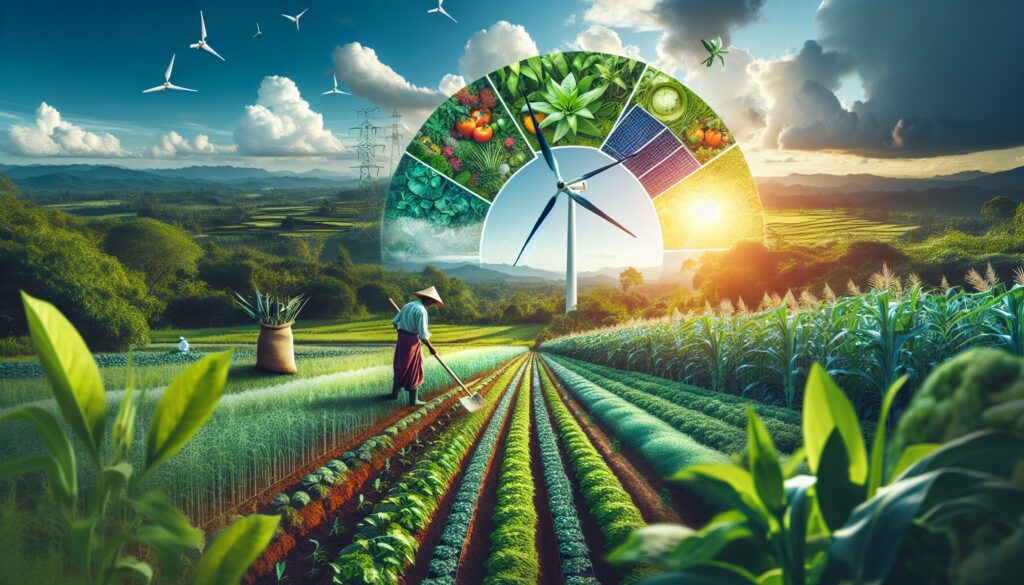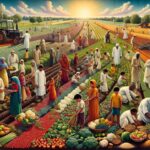Sustainable Agriculture: A Path to a Greener Future
In an ever-evolving world where environmental consciousness is becoming a priority, sustainable agriculture has emerged as a key solution to nurturing both the earth and its people. This thoughtful approach to farming balances the needs of the environment with the production of food, ensuring that future generations can continue to benefit from the land. By embracing sustainable practices, we can create a harmonious relationship between nature and agriculture that allows us to meet today’s needs without compromising tomorrow’s.

What is Sustainable Agriculture?
At its core, sustainable agriculture refers to farming methods that are ecologically sound, economically viable, and socially responsible. It involves using techniques that work in harmony with the environment to preserve natural resources, reduce waste, and promote biodiversity. Unlike conventional farming, which often relies on synthetic fertilizers and pesticides, sustainable agriculture aims to maintain soil health and reduce environmental harm.
Key Principles of Sustainable Agriculture
- Soil Health
Healthy soil is the foundation of sustainable agriculture. Practices such as crop rotation, cover cropping, and reduced tillage help maintain the natural fertility of the soil, preventing erosion and nutrient depletion. By avoiding chemical additives and focusing on organic methods, farmers encourage a rich ecosystem of microorganisms that contribute to plant health and resilience. - Water Conservation
Water is a precious resource, and sustainable agriculture seeks to use it efficiently. Techniques such as drip irrigation, rainwater harvesting, and planting drought-resistant crops can reduce water waste. By optimizing water use, sustainable farming minimizes the impact on local water supplies and helps protect aquatic ecosystems. - Biodiversity
A diverse farm ecosystem can naturally control pests, improve soil health, and reduce the need for chemical inputs. Sustainable agriculture encourages planting a variety of crops, integrating livestock, and preserving natural habitats around farmland. This fosters a balanced ecosystem where plants, animals, and insects work together to create a more resilient environment. - Reduced Chemical Use
Sustainable farming emphasizes minimizing the use of synthetic fertilizers and pesticides. Instead, it relies on natural pest control methods, such as introducing beneficial insects or using crop diversity to deter pests. This approach helps reduce the risk of soil and water contamination while promoting safer food for consumers. - Local and Seasonal Farming
Supporting local agriculture reduces the carbon footprint associated with food transportation and encourages communities to consume seasonal produce. By focusing on locally grown crops, farmers can reduce energy consumption while offering fresh, nutrient-dense food.
Benefits of Sustainable Agriculture
- Environmental Impact: By preserving natural resources and reducing chemical use, sustainable agriculture minimizes pollution and helps combat climate change. Healthy soils can also act as carbon sinks, absorbing carbon dioxide from the atmosphere.
- Economic Viability: Sustainable practices often lead to long-term savings for farmers. Healthier soils produce higher yields over time, and reducing reliance on chemical inputs lowers costs. In turn, this can create more stable livelihoods for farmers.
- Health and Wellbeing: Sustainable agriculture produces healthier, safer food by limiting the use of harmful chemicals. Consumers can enjoy fresh, nutrient-rich produce that is free from synthetic pesticides, contributing to better overall health.
- Community and Social Impact: Local, sustainable farming strengthens communities by creating jobs, supporting local economies, and encouraging healthier eating habits. It also fosters a deeper connection between people and the food they consume, promoting a more mindful approach to eating.
The Way Forward
Sustainable agriculture represents a hopeful and forward-thinking approach to farming that recognizes the delicate balance between humanity and the earth. By supporting these practices, we can take a significant step toward reducing environmental damage, protecting biodiversity, and ensuring a brighter, more resilient future for generations to come.
Whether you’re a farmer, a consumer, or simply someone who cares about the planet, sustainable agriculture offers a way to contribute to a healthier, greener world. By choosing sustainably grown produce and supporting local farms, we can all play a part in fostering a more sustainable future.



